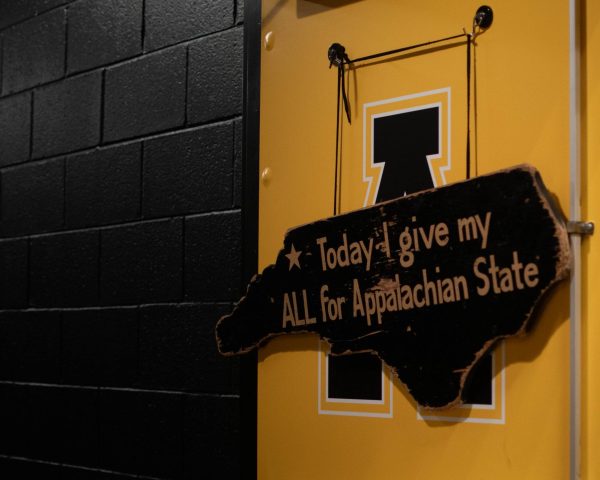Caleb’s Concepts: The economic benefits to postponing fall sports
August 12, 2020
Brace yourselves, fall football probably will not happen this year. On Aug. 11, The Big 10 Football Conference postponed all fall sports, with the Pac-12 following suit later that afternoon. Why? COVID-19.
According to the CDC, large in-person gatherings have the highest risk of transmitting COVID-19. Unfortunately, large sporting events, like football, will have to adapt to COVID-19 precautions to help halt the spread of COVID, resulting in a loss of attendance and ticket revenue. Therefore, it is in the best interest of the athletic department to postpone the season until spring and hope that COVID precautions are no longer necessary.
App State Athletics is no exception and should follow the lead of the Big 10 and Pac 12 by postponing fall sports. The long run costs of holding a season for any fall sport far outweighs the benefits because both the university and community will suffer from a loss in revenue. In 2019, App State athletics generated $30 million in revenue with football owning the largest portion of expenses and revenue at $7,241,789 a piece.
Football contributes $54 million to the High Country’s economy in 2017. This monetary flow originates from out of town football fans who made purchases at local businesses, which bolsters the local economy
Now, COVID-19 precautions will limit the amount of money injected into the High Country because, if a season is held, fewer people will be able to attend the games leading towards a reduction in the money supply local businesses have access to. Thus, having a football season in the midst of a pandemic will result in lower revenues for both the football team and the local economy.
This concept, known as opportunity cost, relates to the potential revenue that App State football will likely miss out on should the Sun Belt play come fall. In this situation, football would be selling itself short because it has the potential to earn more if it pushes the season to the spring. Thus, if App hosts football in the fall, they cannot get the lost money back.
Holding a football season could force the athletic department to operate at a loss, which will force the university and the students to subsidize the program. According to USA Today, in 2019-20, App State Athletics generated over $37.9 million in revenues with $3.2 million coming from ticket sales, $4.1 million coming from contributions, $6.6 coming from rights/licensing, $12.7 million came from student fees, $9.4 million came from school funds and $2 million came from other sources.
Should App State Athletics and the Sun Belt Conference decide to hold a football season, App State Athletics will miss out on the ticket sale revenue because of social distance precautions, while still having to pay for other operating expenses.Because it will lose revenue from tickets, it is likely that the athletic department will require the university to subsidize its cash flows. Already, the athletic department has chosen to cut three athletic programs this year citing financial motivations. Should App State proceed with their season, the university will likely have to cut an additional program to lower their overall costs.
However, this does not have to happen. App State should postpone its fall schedule to the spring. This is a gamble that may or may not pay off, because our future is uncertain due to COVID-19. Should we return to normalcy, the benefits of holding off until the spring far outweigh the consequences.













